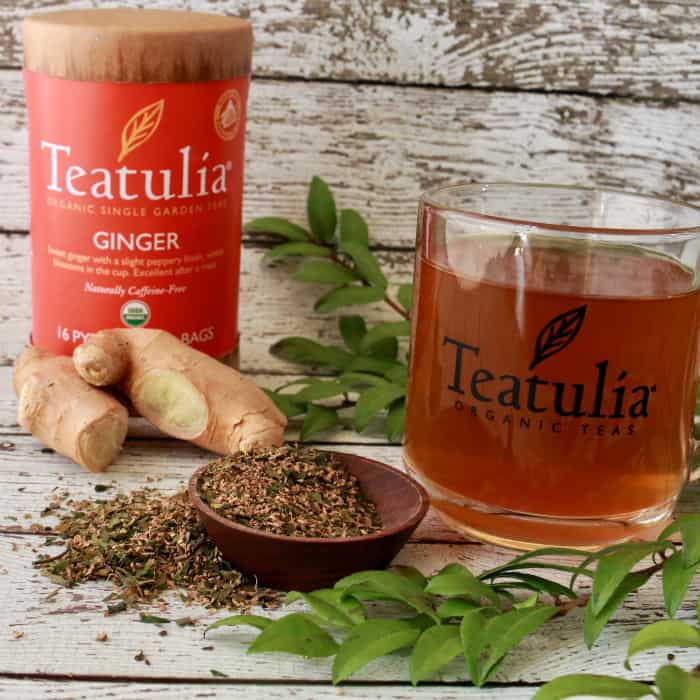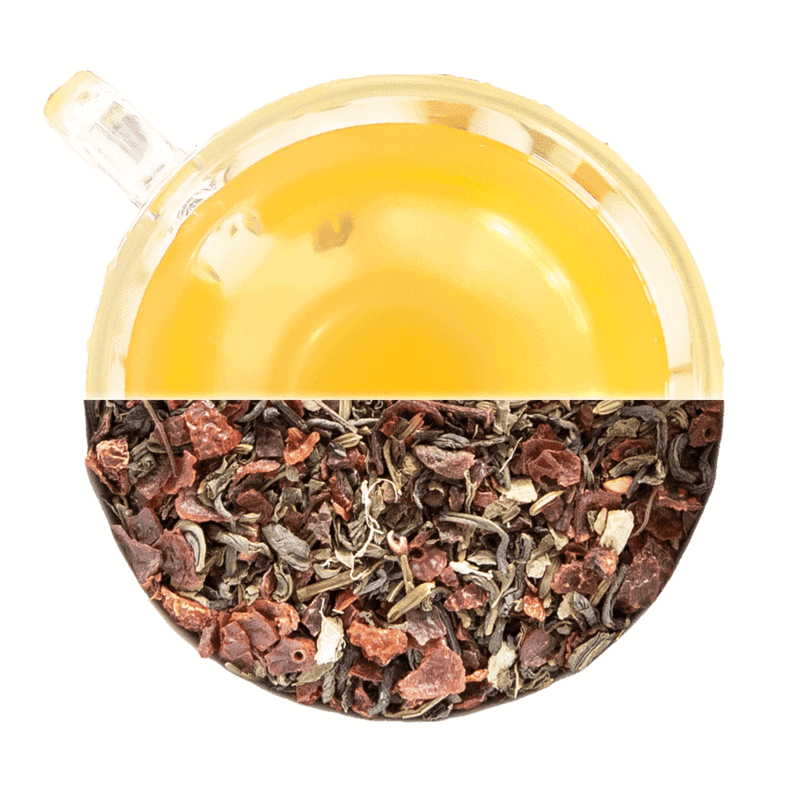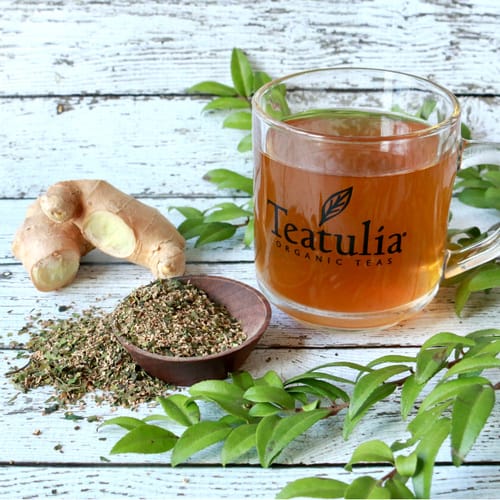A few years ago you would have never been able to get me to drink or eat ginger. Today is a different story. I love the way it heats up a cup of tea as well as my mouth. I love what it does for my body. I had to understand the benefits of ginger and once I did, the rest is history.
Ginger has been around a long time and its medicinal qualities are stellar. Nothing can take away from the health benefits of ginger and how well it helps build our bodies.
Later I will share with you a couple of ways to create with ginger.
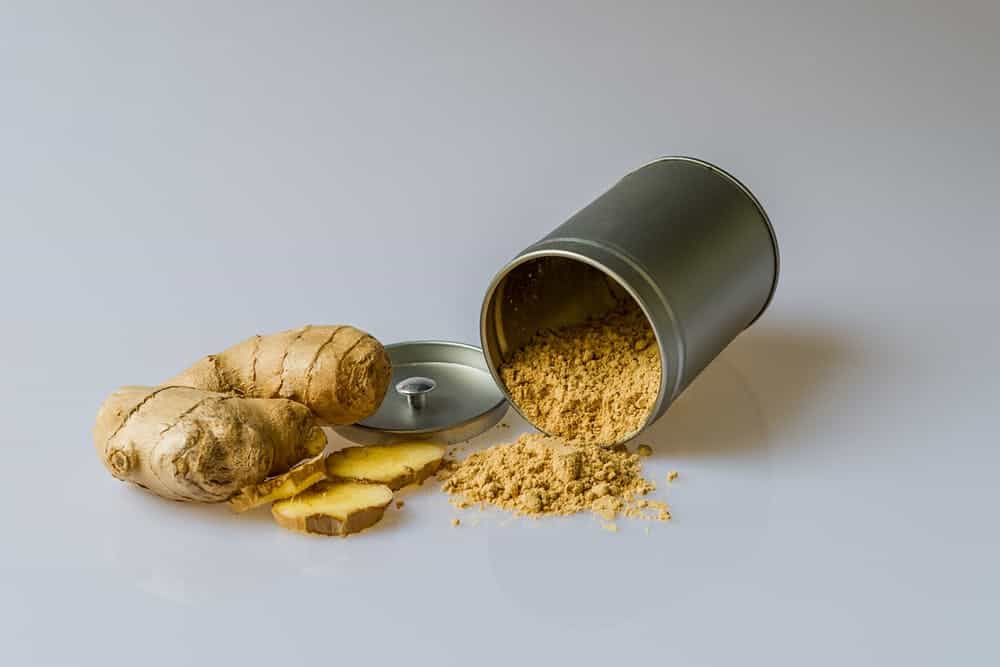
History of ginger
The scientific name for ginger is Ginger Zingiber officinale. The part that’s used for both cooking and medicinally is the root. Ginger is a strange-looking herb. Ginger is a root and that is what it looks like, the root of a tree. The root is hard on the outside with a meaty section inside. Ginger is a root and you will find it in bunches that are around 1=2 inches in diameter and various lengths.
The ginger root was renowned for more than five thousand years. Ginger was first used by the Indians and then medicinally by the Chinese.
Ginger is an Asian herb, made from the root and is a member of the plant family that includes cardamom and turmeric.
A popular medicinal herb as well as a cooking spice. Ginger is one of the only herbs that can also be a spice and is sometimes mistaken for a vegetable. It’s mistaken for a vegetable because you can find fresh ginger in the vegetable section of most stores. The most versatile part used is the root. A little goes a long way.
Traditionally ginger is used as herbal medicine.
Grown in Southeast Asia, then China, and then shared with Europe by traders. Currently, Ginger is grown in Central America and Africa.
As tea ginger simmers in hot water in the form of chopped-up pieces. The pieces are from the root or in a powder in a teabag. Ginger tea warms you from head to toe and top to bottom.
Ginger in powdered form can keep in the refrigerator for up to a year. The root of ginger can keep frozen for up to six months.
Nothing warms the body (and the soul) on a cold night than a cup of warming ginger tea.
Ginger tea has different names in different countries
Singapore – The Halia. Ginger mixed with
India – Adrak Chai. Ginger mixed with milk and chai spices
Indonesia – The Jahi – Hot ginger boiled in a covered pan served hot
Japan – Shogayu – Ginger tea with honey and lemon
Korea – Saenggang -cha. Ginger, honey, or ginger juice mixed with hot water and honey.
Philippines – Salabat – Served during cold and flu season with honey and lemon.
What Is Ginger?
Ginger (Zingiber officinale) is a tuber that has been traditionally used as a food, spice, and medicine.
A warm, rich, and spicy herbal blend of ginger and vasaka. Peppery with sweet overtones.
Nutritional benefits of ginger
Studies show that ginger substances accumulate in your gastrointestinal tract. During digestion, the ginger exerts a positive effect by breaking down the food. Ginger also is a nutrient absorption and proper elimination to keep you regular. Ginger also helps with the calming of the passing of gas. Ginger also calms the stomach. Ginger helps ease so many digestion issues.
The ideal time to drink ginger tea would be before or during a big meal. It’s much more likely to help prevent stomach problems than coffee. Coffee does not have a positive effect on the stomach and increases your risk of stomach issues.
Ginger proved to be antiviral, anti-inflammatory, anti-motion, antinauseant, and antiulcerogenic. These properties sum up a whole lot of healing for the body and soul.
Follow this link for a full list of the nutrients in ginger.
Ginger is both an Anti-inflammatory and an antioxidant herb. Ginger is also antibacterial, antiviral, and antifungal. Studies have shown ginger to also be anti-cancer. Ginger helps build and improve your immunity. Ginger is a great herbal tea to warm you up during the colder seasons. I enjoy a cup of ginger tea all the time. The most beneficial time to drink herbal tea is during the cold and flu season. It’s a cold buster and flu symptom soother.
There are many health benefits to ginger. Many are included below. The list grows with each new study. Beyond being a healthy drink, it’s a great-tasting and really warms you up
What Is Ginger?
Ginger (Zingiber officinale) is a tuber that has been traditionally used as a food, spice, and medicine.
A warm, rich, and spicy herbal blend of ginger and vasaka. Peppery with sweet overtones.
Antiviral
Ginger tea can strengthen your immunity and help you fight off colds. Ginger tea can also help calm the symptoms of the flu. Ginger tea has anti-viral properties. Helping the respiratory system acting as an expectorant removing excess mucus and phlegm. Ginger in tea form has a relaxing effect on the throat. Causing the surrounding muscles to ease a scratchy irritated throat and calm a cough.
- Fights off colds
- Flu Symptoms
- Calms cough
- Expectorant
- Soothe a sore throat
Anti-inflammatory
Ginger tea contains phytonutrients that help repair cell damage. That damage could have been caused by various reasons. By drinking ginger tea you may be able to stop inflammation. Inflammation of arthritis and muscle pain or spasms before it begins. One thing we know for sure is when our muscles and joints are inflamed we hurt. Ginger tea can also ease menstrual pain.
- Muscle Spasms
- Arthritis
- Pain Relief
- Menstrual pain
Anti-nauseant
Ginger tea settles the stomach by stimulating saliva, bile, and gastric juice production. This helps the food move through your system faster, easing digestive issues. Drink a cup of ginger tea when you start to feel the onset of an upset stomach. Ginger may not help you once you have started to vomit. If your sickness is from food poisoning ginger may also be not effective.
- Motion Sickness
- Seasickness
- Nausea
- Morning sickness
- Chemotherapy nausea
- Stomach – Bloating
- Gas
Anti-ulcerogenic
Ginger tea and its anti-inflammatory and anti-viral properties have a healing effect on stomach ulcers. Not only ulcers of the stomach lining but of the mouth. Healing properties can be felt when drinking tea. The inflammation in your mouth, tongue, or throat is soothed.
- Stomach ulcer
- Mouth sores
- Mouth ulcers
Digestive Issues
One thing I always went for (and still do) when I have an upset stomach is ginger ale. One thing missing in our ginger ale now is … ginger! The benefit of ginger tea is ginger. Ginger assists in moving digesting food along through your gastrointestinal tract. The ideal time to drink ginger tea would be before or during a big meal. Ginger helps the body move the food so it does not have time to sit and create acids to upset your digestion.
- Heartburn
- Acid Reflux
- Bloating
- Gas
Cardiovascular Issues
Ginger tea releases gingerol and protease bringing warmth that increases cardiovascular circulation. Ginger tea also lowers both triglycerides and improves cholesterol. Daily use can decrease the risk of
- High Blood Pressure and heart disease
- Heart Health
- Triglycerides
Anti-Cancer
Ginger aids in the reduction of chemotherapy side effects. Side effects like dizziness, nausea, vomiting, and sweating. Ginger helps protect against several cancers including breast, lung, ovarian, and colorectal.
Awaken the flow of natural earth energy with our Prakriti tea infusion. Infused with active ingredients that will help digestion after a meal, this tea also helps you relax into your intended state. Rich with Star Anise and Fennel, our exceptionally created tea infusion will stimulate your digestion while relieving common digestive discomforts such as bloating and gas. Ginger, featured in this tea, reduces gastrointestinal irritation while the Black pepper gives a needed boost to stomach bacteria. Prakriti, inspired by the science of Ayurveda, seduces you with a heady caramel and woody fragrance and a taste that features a herbal mint note with hints of Rosehip.
More health benefits of ginger include:
Caffeine Free – a huge enjoyed from most herbs
Calming – Relieves stress
Aphrodisiac – Could the warming of ginger tea warm up your love life? Some say yes.
Memory – a study shows ginger helps with memory and ads with Alzheimer’s.
Improve circulation – amino acids help restore and improve blood circulation
Cleanse the body – warms and comforts the body, increases blood flow, leases toxins
Weight Control – Ginger stimulates saliva and digestive enzymes. Increases metabolic heat to burn calories
Grow and brew your own ginger
Last year I had a piece of ginger start to grow a few buds. I decided I would plant it. I live in the midwest and our temperatures are not always the best conditions for growing ginger. I gave it a try. My ginger grew quite a bit and I got a nice piece of ginger from my experiment.
What I learned is that ginger grows great in containers. I’m an avid container gardener. You don’t need a lot of plant ginger:
- A pot
- Soil
- Compost
- Water
- Ginger root
This video is an excellent source of how easy it is to plant and care for your ginger plant. No reason you should not try to grow your own.
Ginger tea made with fresh ginger root cannot be compared to anything else. You can either slice or grate the ginger. Grating ginger will release more flavor into your brew. Take your ginger and place it straight into the water or use an infuser or tea bag.
To calm the taste of ginger you can add peppermint, citrus, fruit, or my favorite turmeric.
One to Three cups of ginger tea a day is the recommendation. Everything is in moderation. Too much can irritate your stomach too little and your body has to work to make what you give it work. It’s a rule of life. Moderation.
Here are a couple of variations of Ginger Tea recipes
Turmeric Ginger Tea
There is so much you can do with ginger tea, the basic recipe is a start. Try adding: lemon, lime, chamomile, peppermint, cayenne, cardamon. Or experiment with your own spices and herbs. The options are endless.
Ingredients:
- 1 or 2 slices of ginger root
- 1 cup boiling water
- dash of ground turmeric
- dash of black pepper
- honey (optional)
Directions:
- Slice your ginger and place it into a mug
- Add boiling water, spices like turmeric and pepper.
- Stir well
- Allow steeping for 5-10 minutes
- Add sweetener if desired
Makes one serving
The following tonic is to make and keep when the cold and flu season hits your household.
Ginger Spice Tonic
Ingredients
- 2 lemons (cleaned)
- 2 piece fresh ginger (about the size of your pointer and middle finger)
- Raw honey
- 12 oz mason jar
Directions
- Slice the ginger and lemons
- Alternate each row as you place them inside the mason jar
- Place the lemon and ginger slices in the mason jar, alternating layers of each.
- Pour honey over the lemon and ginger.
- Allow the honey to sink down and around the lemon and ginger slices.
- Fill to the top
- Seal tightly
Store in the refrigerator
Over time, the mixture will start to turn into a loose jelly. When you are in need of some soothing tea, scoop 2-3 tablespoons into a mug. Fill it with hot water—be sure to scoop whole pieces of ginger and lemon. Allow to steep for 3-4 minutes and sip away.
The healthy benefits of ginger do not stop at tea. The next recipe is not tea but it’s a fun and healthy snack to make with two little ingredients.
Probiotic Ginger Carrots
Fermented foods are so good for you and contain probiotics. Probiotics are excellent for your stomach ailments. We already know how healthy ginger is now combined with carrots and fermented it’s a health bomb.
Ingredients
- Sliced Carrots
- Sliced Ginger
- 1 Tablespoon Salt
- 2 cups Water
Directions
- Slice your carrots – I slice mine into chips
- Slice Ginger
- Combine the salt and water to make your brine, dissolve
- Place your carrots and ginger into the jar, pack it full leaving about ½ inch at the top
- Pour brine over the top completely covering the carrots and ginger
- Keep your jar out of direct sunlight and allow it to ferment for 7-10 days. Make sure to make the date you seal the jar. Don’t think you will remember, I didn’t.
Once the bubbles stop the carrots are good to eat. You can ferment longer or eat them all in one sitting (my choice).
Once opened store in the fridge for up to a year, the longer the jar ferments the stronger the taste.
- 16 oz. loose whole leaf herbal tea.
- Brew 150+ cups per bag! We recommend 2-3 grams of tea per 6oz of water.
- 100% organic tea, direct from our single garden in Bangladesh
- Caffeine content: About 1/4 the amount of caffeine as a cup of coffee.
Does Ginger Pose Any Risks?
Ginger’s health benefits work and ginger does what ginger is supposed to do. There are a few more risks with ginger than other herbs or spices. That has to do with the strength and power of Ginger.
Ginger is not a sleep aid, so if you have problems sleeping, don’t use ginger.
May slow blood clotting avoid ginger before any surgery
Drinking too much ginger can cause your stomach to be upset
Avoid ginger if you have the following medical issues. Ginger may not benefit you or may cause your medication to not work correctly.
- High blood pressure
- Gallstones
- Heartburn
- Acid reflux
- Diabetes
- Peptic ulcers
Pregnant? Check with your health care professional. There have been some studies that suggest ginger is safe in lower doses.
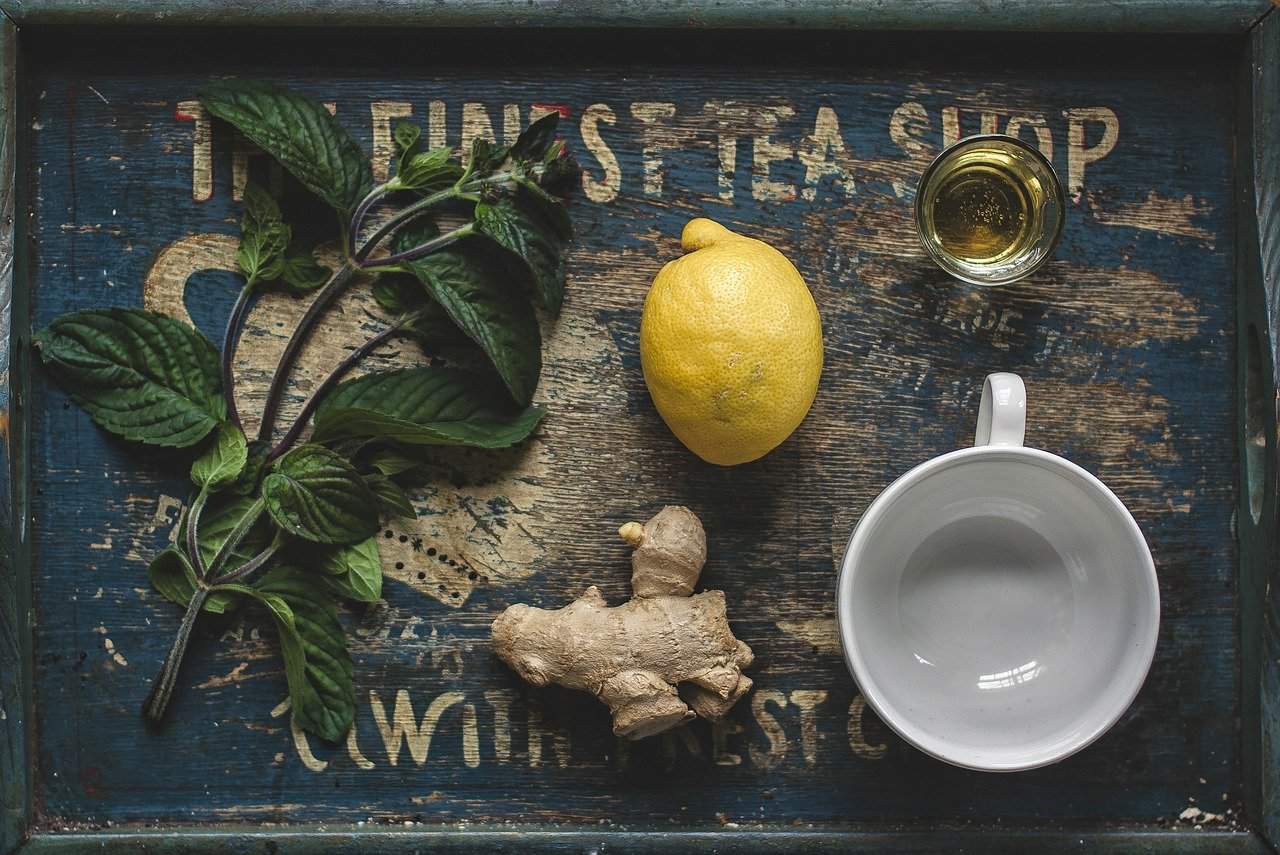
Conclusion
The three words that come to mind with ginger. Spicy, warm, and healing. Ginger is one of the most powerful herbs with a list of its healing properties that seems to grow with every study. Moderation is the keyword when it comes to ginger tea. A local tea company sells ginger root tea. It’s ginger root diced up. Add water and you have a powerful healing tea. It’s going to warm you up. A few years ago I’d never even want to try ginger, it did not sound “good”. Today I embrace the healing benefits of ginger.
Today you will find ginger root tea, ginger cubes, and ginger fermented carrots on my counter. I love ginger and ginger loves me too. Next spring I’ll put on my gardening gloves and give growing ginger another try.

